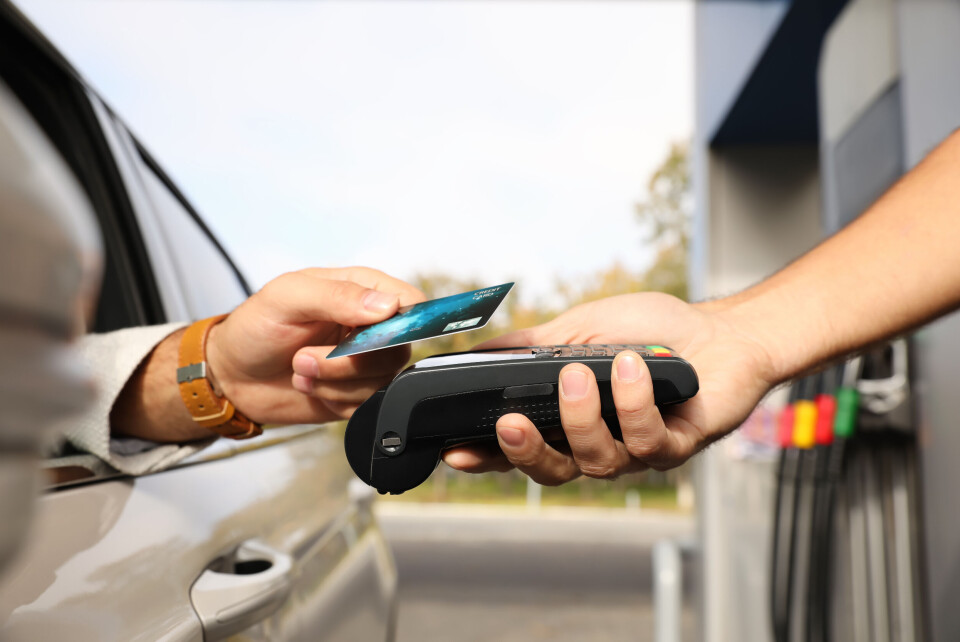-
Many parcel collection points in France are overwhelmed as Christmas approaches
Heavy customer traffic leaves some struggling to cope
-
Warnings issued over connecting to public WiFi networks in France
Lack of encryption and risk of connecting to ‘fake networks’ leave users at risk of hacking attempts
-
Provence’s santon makers seek geographical protection for historic craft
The small, hand-painted clay figurines are at the heart of traditional French Christmas nativity scenes
France considers petrol cheques: What are they, who would benefit?
As prices for petrol and diesel continue to rise, the government is looking to introduce financial aid for hard-hit drivers

As prices for diesel have reached record highs in France this week, and prices for SP95 petrol are the highest they have been in 10 years, the government has announced it will provide financial support for some drivers.
Read more: Supermarket deals, apps: How to find the best petrol prices in France
President Macron said last week a “short-term measure to support households” would be put in place to prevent “leaving people in difficulty”.
The government has not confirmed what form this will take, however Economy Minister Bruno Le Maire told Europe 1 yesterday they favour a chèque carburant (fuel cheque), ie. regular money towards paying for fuel, although not all drivers would be eligible for the cheques.
Mr Le Maire said the alternative of a general cut in tax on fuel was unfair as it helped those driving energy-inefficient cars as well as the rest, and that it would amount to a subsidy for fossil fuels, which would "send the wrong message". It would also be "expensive" to put in place, he said.
How could the cheques work?
Would-be presidential candidate and president of the Hauts-de-France region Xavier Bertrand has been suggesting that a scheme on offer in his region be taken as a model by the government. A similar plan was offered in the Nice area, in the Alpes-Maritimes in 2019 and 2020, but was discontinued at the end of last year.
Chèques carburant have been used in the Hauts-de-France since 2016 with up to €20 per month given to employees on long or short-term work contracts for car journeys taken to and from work, when their place of work is at least 20km from where they live and there are no public transport alternatives.
The workers must have a salary income of equal to or less than twice the minimum wage (Smic) – currently €1,258 net (after employee's social charges) a month. Some 100,000 drivers have benefited from this aid since its creation.
Chèques carburant could be introduced nationwide on a similar premise.
One issue, however, is that applications in the Hauts-de-France involve a complex assessment of eligibility criteria, including where the person lives and their access to public transport and how many kilometres they do each day – raising questions of whether it would cause backlogs if introduced nationally.
There are also issues as to whether only those with more eco-friendly cars should benefit.
Meanwhile the government has said that it should not only be workers that are be eligible for help.
A government source told newspaper Le Parisien: “A stay-at-home mum who takes her children to school or a disabled person who needs to use their car should receive support even if they don’t work.”
It is expected to announce details of the new measure in the coming days.
Earlier this year another scheme, cheques énergie, was used to help low-income households pay gas and electricity bills, which have also increased in the past year.
Read more:Nearly 6 million households in France to get €100 energy bill bonus
Changes in fuel taxes possible
Another method of countering rising fuel prices would be to reduce taxes on petrol and diesel, which have been frozen at 60% since 2018.
However, it seems like the government is leaning away from this option as one source said it would “equally benefit healthcare workers doing at-home checks and families going away for the weekend in an SUV”.
Alternatively, tax breaks could be introduced for some drivers, though critics have said there is a risk that only households that already pay income tax would be eligible, while unemployed drivers would not (editor's note: This would not be the case if the help was in the form of a tax credit, as opposed to a reduction, as these result in a payment from the tax office if a person's tax bill is not high enough for them to benefit).
Related articles
Gas, electricity, petrol: See how your bills are rising in France
France brings in ‘price protection’ measures amid soaring energy rates
Diesel prices reach historic highs in France, averaging €1.53/litre
























